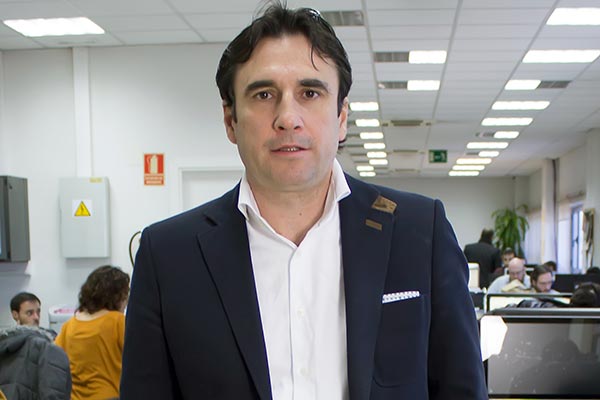
Nilo García
President of Crambo
“If economic and business success is considered a moral defect in Spain, we’ve got a very serious problem”
How can we promote an innovative attitude in Spain?
The problem we have with innovation is that for a long time we’ve left it to others: we haven’t seen ourselves as having a major role in innovation. In fact, historically innovation has not been rewarded or considered essential in Spanish culture. Neither has Spain had an industrial sector capable of developing and implementing innovations. There has been a lack of trust in our own products in Spain, for example in cutting-edge technological products. Another important factor is the need to focus less on research (which is nevertheless fundamental) and more on the final phase of a product, its maturity, getting it out onto the streets, making sure that people buy the product and that it forms part of the natural dynamic. The first thing to be done is to raise awareness of innovation as an aim, and get government authorities to invest in training on innovation. If we want to produce people that have new ideas, it is essential that innovation and inventiveness become another standard subject in schools. What is more, while it is great to learn from what others are doing, we should also pay attention to the contribution we can make; in other words, the values that make us different.
Are there sufficiently solid links in Spain between research, innovation and sale?
There is another very important part of this process, and that’s capital. In Spain, for a long time those with capital have believed that low-risk investments were associated above all with tangible goods. They believe anything in the intangible world of innovation carries a much greater risk, when this is often not actually the case. Critical mass has been reached within the sphere of Harvard University, and in Boston— where we are—there is a plethora of large enterprises with large offices ready to invest in the projects emerging from the university. This does not happen in Spain, and we have to work to build this kind of environment. We have to develop the research side, but we also need to work on the aspects of business and capital. And the last of these is key. Here, in general, innovation is understood not as a science for creating something new but as an adventure that could go well or badly. There is a lack of knowledge, not about how to operate but about the mechanisms required to make investments with a low level of risk in highly productive environments.
Do Spanish companies take full advantage of the technological resources within their reach for innovation?
In terms of business models, in Spain we very much favor continuity. Generally, the majority of businesses do things that others do better or they work to create a small differential value that will allow them to make a living. Then there is a whole set of very interesting enterprises that are global landmarks of innovation and development. These are the enterprises that we should take as a reference. Another very important step to take is to forge more friendly relations with the business world on a social level. If economic and business success are considered a moral defect–and this is one of the big problems we have in Spain–we are then faced with a very serious difficulty that goes against our own interests.
